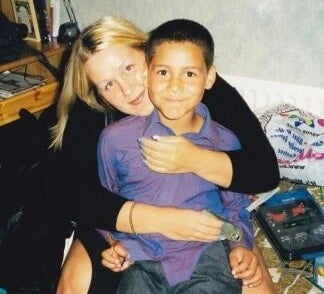Knife crime campaigners warn closure of community centres risks higher levels of youth violence
After The Independent revealed the scale of the problem of knife crime in schools, campaigners warn about the loss of community facilities

Knife crime campaigners have warned that vulnerable youths are likely to be impacted by the rising number of community spaces that have closed in recent years.
Across London, 46 local authority-run community spaces have closed down since 2018, leaving fewer places for charities to run youth clubs, workshops and mentoring services.
The warning comes as The Independent revealed that schools are facing a knife crime “emergency” with four attacks on children or teachers each week.
Figures obtained under the Freedom of Information Act revealed that police received 174 reports of attacks involving blades or sharp instruments during term time last year.
Criticism has been levelled at leading political parties for failing to make the topic a key issue ahead of the general election.

Alison Cope is among those who has witnessed the devastation caused by youths wielding a weapon. Her son, Joshua Ribera, was killed in a nightclub in Birmingham in 2013, and she now travels the UK, speaking to 4,000 young people each week to campaign against violence.
“When you remove something like a youth centre, it means that person doesn’t have a positive influence or mentor,” she told The Independent.
“They might not have their mental health issues picked up, or have a hot meal, or be exposed to inspiring figures who can steer them.
“They feel safe, they feel cared for. It’s not only shocking to close community spaces, it’s dangerous.”
A recent poll by Survation found that among 1,000 teenage boys and 1,000 teenage girls, nearly half said they were worried about knife crime in their local area, while 31 per cent were concerned about it specifically in their school.
“If we look at the influences around young people, the mindset has dramatically changed,” Ms Cope said.
“You have negativity, attitude, bravado, social media, gang culture – the government aren’t looking at this sensibly.”
Another survey by trade union Unison found that 1,243 council-run youth centres closed between 2010 to 2023 across England and Wales. Just 581 centres were still in operation at the end of March last year, as they called for the next government to ensure financial support is a priority.

Funding cuts have seen youth services in England lose some £1.1 billion between 2010-11 and 2020-21, according to Department for Education figures on council spending.
One council worker said: “Many young people have nothing to keep them off the streets away from exploitation, and potential violence at home. Knife crime has increased.
“Mental health has been hit due to less social interaction with positive peers and adults. Young people are increasingly isolated.”
Despite a number of high-profile cases in recent months, which include 14-year-old schoolgirl Elianne Andam being stabbed on a bus in Croydon, knife crime has not been made a priority in manifestos for the country’s leading political parties.
“When it comes to knife crime, it’s gone down to the bottom of the pile,” Ms Cope said. “This is a conveyor belt of children being murdered - how is that not a priority?”.
Sarah Nelson, CEO at Foundation for Future London, said: “The growing lack of safe spaces and services across London is worrying . All young people deserve access to safe spaces to learn, play and grow within their local communities. While some boroughs have made strides in opening new amenities like parks or sports centres, others are falling behind – with closures outpacing openings.
“This trend is particularly worrisome. A lack of safe spaces affects the overall quality of life and developmental opportunities available to young residents. These findings reinforce the need for greater investment to develop and protect vital community spaces across London. Robust community facilities and accessible services and support to young people are integral to fostering equal access to vibrant and supportive environments
